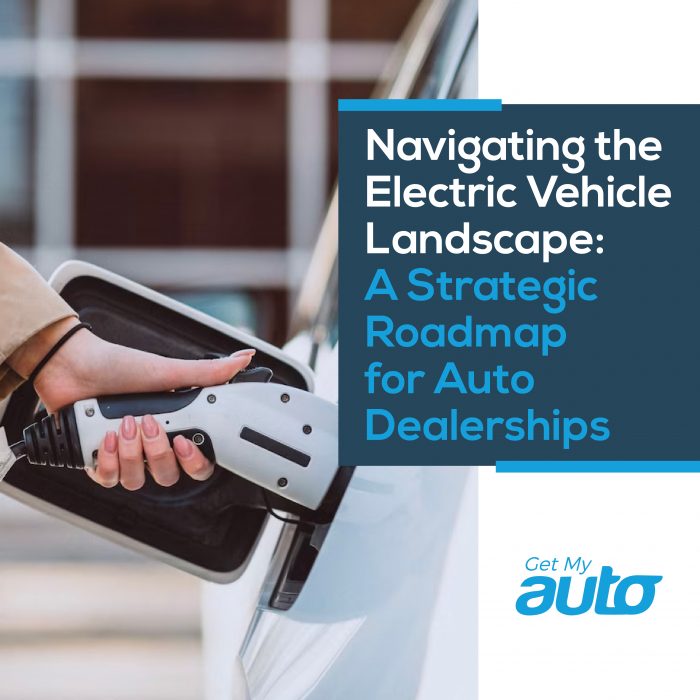Car Dealerships Renew Their Resistance To Electric Vehicle Requirements

Table of Contents
Financial Concerns and Investment in EV Infrastructure
The financial burden of adapting to the EV market is a major factor driving dealership resistance to stricter electric vehicle requirements. Significant upfront investments are needed to prepare for the shift away from gasoline-powered vehicles.
-
High upfront costs: Installing EV charging stations requires considerable capital expenditure. Dealerships must also modify their showrooms to accommodate EVs, potentially including specialized displays and service bays equipped for EV maintenance. These costs can run into tens of thousands, even hundreds of thousands of dollars, depending on the size of the dealership and the scale of the upgrades.
-
Lack of sufficient government incentives: While some government programs offer incentives for EV infrastructure development, many dealerships feel these are inadequate to cover the substantial costs involved. The current level of support often fails to bridge the gap between the investment needed and the potential return on investment, especially considering the uncertainty surrounding EV sales projections.
-
Reduced profit margins: Dealerships are also concerned about potentially reduced profit margins on EVs compared to gasoline-powered vehicles. The lower maintenance requirements of EVs, combined with potentially higher upfront costs for the dealerships, can impact their bottom line. The service departments, a significant profit center for many dealerships, may see a decline in revenue due to the lower maintenance needs of electric cars.
-
Specialized training costs: Selling and servicing EVs requires specialized training for sales staff and mechanics. This adds to the financial burden, as dealerships must invest in training programs and potentially hire additional staff with EV expertise. The lack of readily available, affordable training resources adds another layer of complexity to this challenge.
The significant financial investment required to adapt to the EV market represents a considerable hurdle for many dealerships. Without adequate government support and clear pathways to profitability, the resistance to stricter EV mandates is likely to persist.
Sales and Inventory Challenges Related to Electric Vehicles
Beyond the financial hurdles, dealerships face significant challenges in managing EV sales and inventory. These challenges further fuel their resistance to aggressive electric vehicle requirements.
-
Predicting consumer demand: Accurately forecasting consumer demand for specific EV models is difficult. The relatively nascent EV market is characterized by rapid technological advancements and evolving consumer preferences, making inventory management a complex undertaking. Overstocking can lead to financial losses, while understocking can result in missed sales opportunities.
-
Low consumer awareness: Many consumers remain unaware of the benefits of EVs or hesitant due to factors like range anxiety and charging infrastructure limitations. This lack of awareness impacts sales figures and contributes to dealerships' reluctance to fully embrace EV sales targets. Effective marketing and educational campaigns are crucial to overcome this hurdle.
-
Integrating EVs into sales processes: Integrating EVs into existing sales processes requires adjustments to training, sales strategies, and customer service. Dealerships need to adapt their sales pitches to address unique EV features and concerns, and their service departments must be prepared to handle EV-specific maintenance and repairs.
-
Aggressive EV sales targets: Manufacturers are often imposing aggressive EV sales targets on dealerships, creating pressure to meet quotas that may not reflect the current market realities or the dealerships' preparedness for the EV transition. This can lead to resentment and resistance from dealerships.
Effective strategies for managing EV inventory, targeted marketing campaigns to educate consumers, and realistic sales targets are crucial to mitigate these challenges and foster smoother EV adoption.
Concerns Regarding Government Regulations and Mandates
Government regulations and mandates surrounding EV sales quotas are a key source of concern and resistance among dealerships.
-
Stringency and speed of regulations: Dealerships are concerned about the rapid pace and stringent nature of some government regulations mandating EV sales. The short timeframes for compliance can make it challenging for them to make the necessary investments and adaptations.
-
Regulatory uncertainty: The ever-evolving landscape of government regulations surrounding EVs creates uncertainty. Dealerships worry about unforeseen compliance costs and the potential for conflicting regulations at the state and federal levels.
-
Impact on gasoline vehicle profitability: Stricter EV mandates can negatively impact the profitability of traditional gasoline-powered vehicles, a significant revenue stream for many dealerships. This shift requires dealerships to adapt their business models and potentially diversify their offerings.
-
Dealership lobbying efforts: Dealerships are actively lobbying against stricter EV mandates, arguing for more gradual transitions and increased government support for infrastructure development and consumer education. These efforts often highlight the perceived unfairness of aggressive mandates and the lack of adequate preparation time.
Open dialogue and collaboration between governments and the automotive industry, including dealerships, are vital to create a regulatory framework that is both effective and supportive of the transition to EVs.
The Role of Consumer Perception and Range Anxiety
Consumer perception plays a critical role in the success of the EV transition and contributes to dealership resistance.
-
Range anxiety: Concerns about limited driving range and the availability of charging stations (range anxiety) are major obstacles to widespread EV adoption. This anxiety impacts consumer confidence and reduces the demand for EVs.
-
Negative public perception: Negative perceptions of EVs, often stemming from misconceptions about their performance, cost, or charging infrastructure, also impede sales. Addressing these misconceptions through public education is crucial.
-
Need for EV education: Improved public education and marketing efforts are essential to build consumer confidence and address range anxiety. Clear communication about EV technology, charging options, and government incentives can significantly influence consumer perception and increase demand.
Overcoming consumer concerns about range anxiety and addressing negative public perceptions requires a collaborative effort involving manufacturers, governments, and dealerships to provide adequate charging infrastructure and effective educational campaigns.
Conclusion
This article explored the multifaceted reasons behind car dealerships' renewed resistance to stricter electric vehicle requirements. Financial burdens associated with infrastructure upgrades, challenges in managing EV sales, and concerns about government regulations all contribute to this resistance. Addressing these concerns through collaborative efforts between manufacturers, governments, and dealerships is crucial for a smooth transition to a sustainable automotive future. Understanding the financial constraints, addressing consumer concerns, and creating a supportive regulatory environment are all key components of successfully navigating this transition.
Call to Action: Understanding the complexities surrounding the adoption of electric vehicles is vital. To facilitate a successful transition to a greener automotive industry, we must encourage open dialogue and address the concerns surrounding electric vehicle requirements proactively. Let's work together to overcome the obstacles hindering the widespread adoption of EVs and create a future where sustainable transportation is the norm.

Featured Posts
-
 Neal Pionk Contract Status News And Future Prospects
Apr 30, 2025
Neal Pionk Contract Status News And Future Prospects
Apr 30, 2025 -
 Federal Investigation Reveals Millions Stolen Via Office365 Hacks
Apr 30, 2025
Federal Investigation Reveals Millions Stolen Via Office365 Hacks
Apr 30, 2025 -
 Successful Operation 35 Illegal Refining Sites Dismantled 99 Arrested
Apr 30, 2025
Successful Operation 35 Illegal Refining Sites Dismantled 99 Arrested
Apr 30, 2025 -
 Jornada Nacional De Boxeo En Saltillo Fomentando El Deporte Y El Cambio
Apr 30, 2025
Jornada Nacional De Boxeo En Saltillo Fomentando El Deporte Y El Cambio
Apr 30, 2025 -
 Beyonce And Jay Z The Strategic Absence Of Sir Carter From Public Life
Apr 30, 2025
Beyonce And Jay Z The Strategic Absence Of Sir Carter From Public Life
Apr 30, 2025
Latest Posts
-
 Police Watchdogs Ofcom Complaint The Chris Kaba Panorama Investigation
Apr 30, 2025
Police Watchdogs Ofcom Complaint The Chris Kaba Panorama Investigation
Apr 30, 2025 -
 Independent Police Complaints Commission Seeks Ofcom Review Of Chris Kaba Panorama Documentary
Apr 30, 2025
Independent Police Complaints Commission Seeks Ofcom Review Of Chris Kaba Panorama Documentary
Apr 30, 2025 -
 Chris Kaba Police Watchdog Seeks Ofcom Action Over Panorama Documentary
Apr 30, 2025
Chris Kaba Police Watchdog Seeks Ofcom Action Over Panorama Documentary
Apr 30, 2025 -
 Ofcom Investigation Launched Following Police Watchdogs Chris Kaba Panorama Complaint
Apr 30, 2025
Ofcom Investigation Launched Following Police Watchdogs Chris Kaba Panorama Complaint
Apr 30, 2025 -
 Police Watchdog Challenges Chris Kaba Panorama Episode With Ofcom Complaint
Apr 30, 2025
Police Watchdog Challenges Chris Kaba Panorama Episode With Ofcom Complaint
Apr 30, 2025
